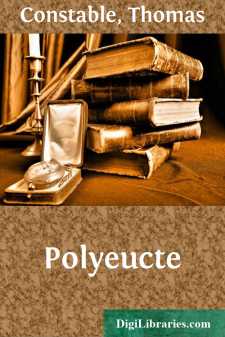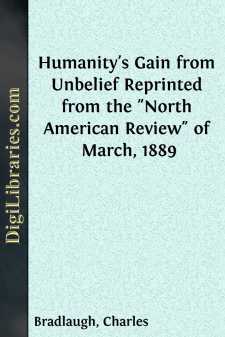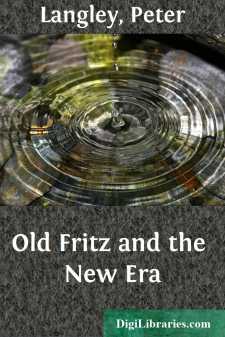Categories
- Antiques & Collectibles 13
- Architecture 36
- Art 48
- Bibles 22
- Biography & Autobiography 813
- Body, Mind & Spirit 142
- Business & Economics 28
- Children's Books 13
- Children's Fiction 10
- Computers 4
- Cooking 94
- Crafts & Hobbies 4
- Drama 346
- Education 46
- Family & Relationships 57
- Fiction 11828
- Games 19
- Gardening 17
- Health & Fitness 34
- History 1377
- House & Home 1
- Humor 147
- Juvenile Fiction 1873
- Juvenile Nonfiction 202
- Language Arts & Disciplines 88
- Law 16
- Literary Collections 686
- Literary Criticism 179
- Mathematics 13
- Medical 41
- Music 40
- Nature 179
- Non-Classifiable 1768
- Performing Arts 7
- Periodicals 1453
- Philosophy 64
- Photography 2
- Poetry 896
- Political Science 203
- Psychology 42
- Reference 154
- Religion 513
- Science 126
- Self-Help 84
- Social Science 81
- Sports & Recreation 34
- Study Aids 3
- Technology & Engineering 59
- Transportation 23
- Travel 463
- True Crime 29
Sort by:
by:
Thomas Constable
INTRODUCTORY NOTE Pierre Corneille was born in Rouen in 1606, the son of an official; was educated by the Jesuits, and practised unsuccessfully as a lawyer. His dramatic career began with the comedy of "Melite," but it was by his "Medee" that he first proved his tragic genius. "The Cid" appeared in 1636, and a series of masterpieces followed—"Horace," "Cinna,"...
more...
PREFACE "The second chantry" (for it would be absurd to keep "temple") of this work "is not like the first"; in one respect especially, which seems to deserve notice in its Preface or porch—if a chantry may be permitted a porch. In Volume I.—though many of its subjects (not quite all) had been handled by me before in more or less summary fashion, or in reviews of individual...
more...
INTRODUCTION The story of Love, that simple theme with variations ad libitum, ad infinitum, is never old, never stale, never out-of-date. And as we sometimes seek rest from the brilliant audacities and complex passions of Wagner or Tschaikowsky in the tender simplicity of some ancient English air, so we occasionally turn with relief from the wit and insight and subtlety of our modern novelists to the...
more...
CHAPTER I. THE WHISTLE. It was a bright, welcome holiday to little Benjamin Franklin, when his kind parents put some coppers into his pocket, to spend as he saw fit. Possibly it was the first time he was ever permitted to go out alone into the streets of Boston with money to spend for his own pleasure; for he was now but seven years old. "Can I have more coppers when these are gone?" he...
more...
HUMANITY'S GAIN FROM UNBELIEF. As an unbeliever, I ask leave to plead that humanity has been real gainer from scepticism, and that the gradual and growing rejection of Christianity—like the rejection of the faiths which preceded it—has in fact added, and will add, to man's happiness and well being. I maintain that in physics science is the outcome of scepticism, and that general progress...
more...
by:
Peter Langley
FOREWORD I would merely say a few words in justification of the Historical Romance, in its relation to history. Any one, with no preceding profound study of history, who takes a few well-known historical facts as a foundation for an airy castle of romantic invention and fantastic adventure, may easily write an Historical Romance; for him history is only the nude manikin which he clothes and adorns...
more...
BOYHOOD TO MANHOOD. I. FROM OLD ENGLAND TO NEW ENGLAND. "I am tired of so much persecution under the reign of our corrupt king," said a neighbor to Josiah Franklin, one day in the year 1685, in the usually quiet village of Banbury, England, "and I believe that I shall pull up stakes and emigrate to Boston. That is the most thriving port in America." "Well, I am not quite prepared...
more...
PREFACE. Heinrich Heine called himself a soldier in the army of human liberation. It was a modest description of himself, for he was more; his position was that of a leader, and his sword was like the mystic Excalibur, flashing with the hues of his genius, and dealing death to the enemies of freedom. Humbler fighters than Heine may count themselves as simple soldiers in that great army, whose...
more...
PREFACE. Next to George Washington, we must write, upon the Catalogue of American Patriots, the name of Benjamin Franklin. He had so many virtues that there is no need of exaggerating them; so few imperfections that they need not be concealed. The writer has endeavored to give a perfectly accurate view of his character, and of that great struggle, in which he took so conspicuous a part, which secured...
more...
INTRODUCTORY NOTE BENJAMIN FRANKLIN was born in Milk Street, Boston, on January 6, 1706. His father, Josiah Franklin, was a tallow chandler who married twice, and of his seventeen children Benjamin was the youngest son. His schooling ended at ten, and at twelve he was bound apprentice to his brother James, a printer, who published the "New England Courant." To this journal he became a...
more...











